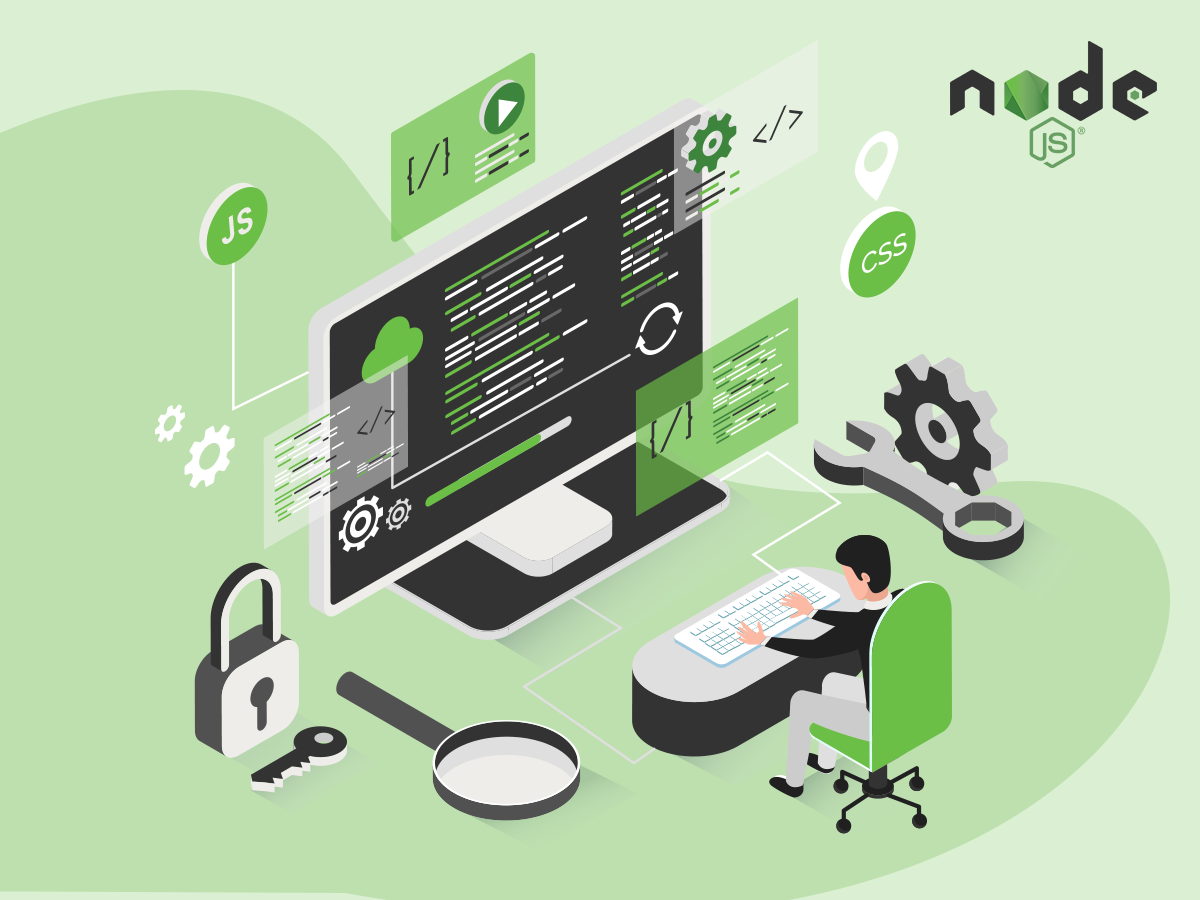Top Node.js Security Best Practices To Follow
 XongoLab Technologies
XongoLab Technologies
Welcome to the world of Node.js! Whether you are a beginner or an experienced developer, this guide aims to provide you with a Node.js best practices to help you write efficient, scalable, and secure web applications.
Node.js has gained immense popularity over the years for its ability to build high-performance, event-driven applications. As a JavaScript runtime environment, it allows developers to leverage their existing JavaScript skills to build server-side applications, APIs, microservices, and more.
While Node.js offers flexibility and power, it also presents certain challenges. Node.js applications can become complex, hard to debug, and prone to performance issues if not developed with best practices in mind. That's why it's crucial to follow established guidelines and patterns to ensure the quality and stability of your codebase.
In this guide, we will cover a wide range of best practices that address key areas of Node.js development, including project structure, error handling, performance optimization, security, testing, and deployment strategies.
Here are some of the Node.js best practices for developing secure web apps.
Node.js Best Practices to Follow
Use a framework. There are many great frameworks available for Node.js, such as Express, NestJS, and Sails.js. Using a framework can help you get started quickly and avoid reinventing the wheel.
Structure your code well. Node.js applications can quickly become complex, so it's important to structure your code well. Use a consistent naming convention, and break your code into smaller, manageable files.
Use a package manager: Node.js has a built-in package manager called npm (Node Package Manager) that allows you to easily manage dependencies for your project. Use npm or yarn (an alternative package manager) to handle your project's dependencies and ensure you have the latest versions.
Use a build tool. A build tool can help you automate the process of compiling your code and minifying your assets. This can assist in improving the performance of your app.
Test your code. It's important to test your code regularly to ensure that it works as expected. There are many great testing frameworks available, such as Jest and Mocha.
Use a continuous integration (CI) server. A CI server can help you automate the process of building, testing, and deploying your application. This can help you save time and ensure that your application is always up-to-date.
Use a continuous delivery (CD) server. A CD server can help you automate the process of deploying your application to production. This can help you ensure that your application is always available to your users.
Use asynchronous/non-blocking I/O: Node.js is known for its non-blocking I/O model, which allows for high scalability and performance. Leverage asynchronous functions and callbacks to avoid blocking the event loop and handle I/O operations efficiently.
Monitor your application. Once your application is in production, it's important to monitor it to ensure that it's performing as expected. There are many great monitoring tools available, such as New Relic and Datadog.
Secure your application: Apply security best practices to protect your Node.js application. Avoid using vulnerable or deprecated dependencies, sanitize user input, implement authentication and authorization mechanisms, and use secure communication protocols (e.g., HTTPS) when necessary.
Following these best practices can help you develop high-quality Node.js applications. Whether you are working on a small project or building enterprise-grade applications, these best practices will empower you to write clean, reliable, and scalable code.
Subscribe to my newsletter
Read articles from XongoLab Technologies directly inside your inbox. Subscribe to the newsletter, and don't miss out.
Written by

XongoLab Technologies
XongoLab Technologies
XongoLab Technologies LLP is a reputed mobile app development company in India. Founded in 2011, the company specializes in mobile app development, web development, and enterprise software development. XongoLab has a team of experienced developers who are experts in a variety of technologies. The company has a strong track record of delivering high-quality software solutions to clients in a variety of industries. Our mission is to provide businesses with the technology they need to succeed. The company believes that technology can be a powerful tool for businesses of all sizes, and it is committed to helping businesses use technology to improve their operations and reach new customers.